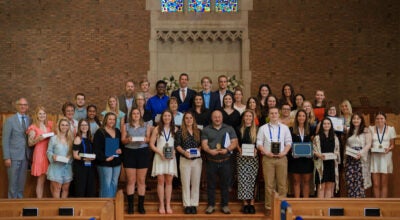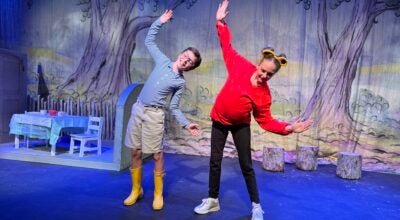Summer school is out, but summer learning is in
Published 12:10 am Sunday, July 19, 2015

- Instructor Mendy Brady works with students on an iPad at English as a 2015 second language camp, a summer remediation program. Jeanie Groh / Salisbury Post
Gone are the days of traditional summer school, where students show up, sit in rows and relearn things they didn’t grasp over the school year.
“School districts don’t do the summer school as it was traditionally done. It wasn’t as focused. It didn’t provide prescriptive intervention for students,” said Rowan-Salisbury Assistant Superintendent Dr. Julie Morrow.
Alesia Burnette, director of elementary education, said that summer school didn’t have a big enough impact on student performance and added that state funding was also cut many years ago for summer school programs.
The focus has turned to early intervention, Morrow said.
“Summer is not the only time we should be trying to do intervention,” she said. “If you wait until its summer, you’ve waited to long.”
“In education now, we’re doing a much better job throughout the year,” Morrow added.
Assessments given throughout the year let teachers to know where their students stand and allow them to personalize each student’s learning experience.
“Now it’s very focused on what that child needs,” she said. “Our goal is to get our students early on.”
There are still some remediation programs over the summer, however. While traditional summer school was very broad and tried to recap what was learned during the school year, the opportunities now are “very focused” and “very intentional,” Morrow said.
The programs that do exist aim to “give variety of experiences they may not be able to get over the school year,” Burnette said.
She added that they offer “specific support” rather than making a child retake a class.
Perhaps the most notable summer program would be Read to Achieve summer camp. The state-mandated program is designed for third graders who are not on grade level in their reading skills.
“We do it as a way to assist students who struggled with reading and who need additional assistance,” Morrow said, adding that because it’s only for a very specific group of third graders, the learning experience is very focused.
“This is an intervention,” she said.
English as a second language camps also meet during the summer, giving students with poor English language skills an opportunity to work on their reading, writing and comprehension skills.
Some high school students who fail a class choose to take credit recovery courses online and can continue those classes up until July 1 – the official end of the school year.
Even though summer school may not be in session, learning shouldn’t stop over the summer months.
It’s important for students to “keep those skills sharp,” Burnette said. “Like any other skill,” if academic skills aren’t used over the summer, they are lost.
Most summer programs, such as camps or day cares, offer both experiential and academic services, she added.
“Read, read and read,” Morrow said.
“Learning does not stop over the summer,” she said. “It’s just a different environment.”



